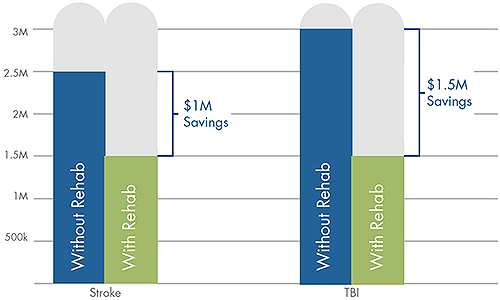Our Narconon Africa Statements
Our Narconon Africa Statements
Blog Article
The smart Trick of Narconon Africa That Nobody is Talking About
Table of ContentsSome Known Details About Narconon Africa Not known Details About Narconon Africa Rumored Buzz on Narconon AfricaExcitement About Narconon AfricaAn Unbiased View of Narconon AfricaFacts About Narconon Africa UncoveredNarconon Africa Can Be Fun For Anyone
In a series of documents with Manudeep Bhuller and Katrine V. Lken, we get over these data obstacles and the nonrandomness of jail time, providing new insights into exactly how imprisonment affects regression, work, children, and criminal networks - Global rehab network. Number 1 Our work studies the results of incarceration in Norway, a setting with 2 essential benefitsWe can even more connect this details to various other relative, including youngsters and siblings. We have information on co-offending that permits us to map out criminal networks for observed criminal offenses. Second, we can leverage the arbitrary task of criminal cases to judges who vary in their tendencies to send defendants to prison.
Some judges send defendants to jail at a high price, while others are more tolerant. We determine a court's stringency as the ordinary incarceration rate for all other cases a judge handles, after regulating for court and year fixed impacts, which is the level of arbitrary task. This quasi-random project of court stringency can be used as a tool for imprisonment, as it highly forecasts the judge's choice in the present instance, but is uncorrelated with other case characteristics both by layout and empirically.
The Ultimate Guide To Narconon Africa
Attributes of prisoners, consisting of demographics and criminal offense classifications, are extensively comparable in Norway and various other nations, including the USA, with the exceptions that the United States murder price is a lot greater, and race plays a bigger role there as well. What attracts attention as different, particularly compared to the United States, is the jail system.
Number 2In Norway, the average time invested behind bars is a little over six months, which resembles most other Western European countries. This contrasts with typical US prison time of virtually 3 years, which is in big component the factor the United States is an outlier in its imprisonment price compared with the remainder of the world [Figure 1]
Getting The Narconon Africa To Work
This gives a lot more separation between small and hardened lawbreakers than exists in the USA. There is no overcrowding in Norwegian prisons and better personal safety and security, with each detainee being appointed to their own cell and a greater inmate-to-staff proportion than in the USA (https://narcononza12.start.page). Prisons in Norway additionally offer well-funded education and learning, drug treatment, psychological wellness, and task training programs
Our research study on the effects of incarceration on the transgressor, using the random project of courts as an instrument, yields 3 key findings. Initially, imprisonment dissuades additionally criminal actions. We find that imprisonment decreases the probability that an individual will certainly reoffend within 5 years by 27 portion points and minimizes the equivalent variety of criminal costs per person by 10 charges.
Fascination About Narconon Africa
We locate substantial declines in reoffending probabilities and collective billed criminal activities even after offenders are released from jail. Our 2nd outcome is that bias due to option on unobservable specific qualities, if neglected, brings about the erroneous final thought that time spent behind bars is criminogenic. If we just contrast criminal offenders imprisoned versus those not imprisoned, we locate positive organizations between incarceration and subsequent criminal offense.
This stands in comparison to our analysis based upon the random task of judges, which finds an opposite-signed outcome. Third, the decrease in criminal activity is driven by individuals that were not functioning before imprisonment. Amongst these people, imprisonment raises engagement in programs routed at boosting employability and lowering regression, and this eventually increases work and incomes while inhibiting criminal habits.

Imprisonment creates a 34 percentage point rise in participation in task training programs for the formerly nonemployed, and within five years their work rate increases by 40 percent points. At the same time, the probability of reoffending within five years is reduced by 46 portion factors, and there is a decline of 22 in the ordinary number of criminal charges.
The Facts About Narconon Africa Revealed

A probable explanation for the distinction is that Norway's prison system differs significantly, both in regards to prison-term length and prison problems, from the US prison system. While understanding the results of incarceration on the culprit is a vital first action, catching spillover effects is likewise vital for assessing criminal justice policy and developing reliable jail systems.
Get This Report on Narconon Africa

Average least squares estimates expose that youngsters of incarcerated dads are 1 percentage factor most likely to be billed with a crime, family member to a mean of 13 percent, and show no impact on college grades. Using our judge stringency instrument, we locate no analytical evidence that a daddy's incarceration affects a youngster's own criminal offense or school grades, but we are not able to eliminate modest-sized impacts.
The Only Guide for Narconon Africa
We specify criminal teams based on network links to prior criminal situations. Our evaluation yields 3 main findings. When a criminal network member is incarcerated, their peers' possibility of being charged with a future crime lowers by 51 portion points over the following four years. Having an older sibling incarcerated reduces the probability his more youthful brother will be charged with a crime by 32 percentage factors over the following four years.
Report this page